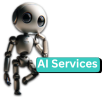The landscape of education and employment continues to evolve at a breakneck pace. With the integration of advanced technologies such as artificial intelligence, automation, and data analytics into virtually every industry, students face an important question: Should they prioritize soft skills or hard skills?
This blog delves into the differences between the two, their respective importance in today’s job market, and how students can strike the right balance to succeed in their careers.
The education and employment landscape will change rapidly. With the involvement of advanced technologies such as artificial intelligence, automation, and data analytics in every industry. Students around the globe face an important question.
Should they prioritize soft skills or hard skills? This article dives into the differences between the two, their importance in today’s job market, and how students can strike the right balance to succeed in their careers.
What Are Soft Skills And Hard Skills
Before diving into their significance, it’s important to understand these terms first.
Hard Skills
Hard skills include technical skills such as coding, job-specific knowledge, and abilities that can be measured and taught. For example, some hard skills include:
- Programming languages (e.g., Python, JavaScript)
- Data analysis and visualization
- Engineering principles
- Proficiency in tools like Excel, AutoCAD, or Adobe Suite
- Knowledge of accounting or financial modeling
Hard skills are typically acquired through formal education, certifications, and training programs. They are often easy to quantify and appear prominently on resumes
Soft Skills
Soft skills include interpersonal and intrapersonal abilities, which are harder to measure, but equally important in professional settings. Example includes:
- Communication
- Emotional intelligence
- Problem-solving
- Adaptability
- Leadership
- Time management
Unlike hard skills, soft skills are usually developed through experiences, interactions, and self-awareness.
The Growing Importance of Soft Skills
In an era where artificial intelligence is changing almost every industry and more and more work is getting automated. The importance of soft skills is more than ever. Let us dive deeper to understand why.
The Human Touch in A Tech-Driven World
Automation and artificial intelligence are handling more and more technical and repetitive tasks, employers are placing emphasis on uniquely human abilities. Skills such as critical thinking, creativity, and empathy are invaluable in roles requiring innovation, customer interaction, and leadership. These qualities not only enhance collaboration within teams but also foster better decision-making processes in dynamic environments.
Collaboration in Hybrid Work Environments
After the pandemic, working in a hybrid or remotely has become the new normal. Tools and platforms such as Slack, Zoom, and Microsoft Teams have enhanced the way teams collaborate and communicate. However, working effectively with others even in a virtual setting requires strong soft skills, such as teamwork and emotional intelligence. The ability to build relationships and trust in a remote context is an increasingly critical asset.
Navigating Uncertainty
The pace of change in industries means that adaptability and resilience are more critical than ever. Employers seek individuals who can learn new skills quickly and pivot when circumstances demand it. For example, during periods of economic uncertainty or rapid technological shifts, employees with high adaptability thrive by embracing challenges and finding innovative solutions.
Leadership in the Age of Change
Leadership is no longer about authority but about influence and inspiration. Modern leaders must motivate teams, manage conflicts, and foster inclusivity. As organizations become more diverse and global, cultural intelligence and active listening are indispensable components of effective leadership.
Why Hard Skills Still Matter
While the importance of soft skills is growing, hard skills remain the foundation of any career. Here’s why:
Industry-Specific Requirements
Certain roles demand a high level of technical expertise. For instance, a software developer must know how to code, and a civil engineer must understand structural dynamics. Without these hard skills, individuals cannot perform the core functions of their jobs. Employers often use hard skills as the first layer of evaluation in hiring processes, ensuring candidates meet baseline qualifications.
Competitive Edge
Certifications and mastery of hard skills can set candidates apart in competitive job markets. For example, knowledge of cloud computing platforms like AWS or expertise in machine learning can make candidates more attractive to employers in tech-heavy industries. Such skills not only demonstrate competence but also reflect a proactive approach to staying current in one’s field.
Building Credibility
Hard skills often serve as a gateway to demonstrating competence. Employers are more likely to invest in candidates who have the technical expertise needed to perform the job. For instance, a digital marketer proficient in SEO tools like SEMrush or Google Analytics brings immediate value to a team, allowing them to deliver results efficiently.
Striking The Right Balance: A Roadmap For Students
Step 1: Assess Your Career Goals
Understanding your career aspirations will help you determine the balance of skills required. For instance, if you aim to become a data scientist, technical expertise in programming and statistical analysis is critical. However, you’ll also need communication skills to present findings effectively. On the other hand, aspiring entrepreneurs need to balance business acumen with leadership and networking capabilities.
Step 2: Focus on Transferable Skills
Some skills are valuable across industries and roles. For example:
- Soft Skills: Communication, adaptability, and problem-solving
- Hard Skills: Data literacy, digital fluency, and project management
By developing these transferable skills, students can remain versatile and prepared for changes in the job market. For instance, data literacy, the ability to interpret and use data effectively, is relevant to marketing, finance, healthcare, and even education.
Step 3: Invest in Continuous Learning
The half-life of skills is shrinking, meaning that knowledge and expertise become outdated quickly. To stay relevant, students should:
- Take online courses and certifications
- Attend workshops and industry events
- Seek internships or freelance opportunities to gain practical experience
Lifelong learning is no longer optional but essential. Platforms like Coursera and Udemy offer affordable, high-quality courses tailored to emerging trends.
Step 4: Leverage Technology For Growth
Use technology to improve both hard and soft skills. For example:
- Hard Skills: Platforms like LinkedIn Learning and Codecademy offer technical courses on topics ranging from software development to financial analysis.
- Soft Skills: Apps like Headspace can help build mindfulness, while tools like Grammarly improve written communication. Virtual reality platforms are even being used to simulate scenarios for practicing leadership and negotiation.
Step 5: Practice And Reflect
Developing soft skills often requires practice and self-awareness. Engage in group activities, seek feedback, and reflect on your experiences to identify areas for improvement. Journaling, for instance, can help track your progress and identify patterns in your interpersonal interactions.
Real-World Examples of Skill Integration
Example 1: The Tech Entrepreneur
A tech entrepreneur needs to combine hard skills like coding and market analysis with soft skills such as leadership and networking to launch and scale a startup successfully. They must be able to pitch ideas compellingly while understanding the technical feasibility of their projects.
Example 2: The Healthcare Professional
In healthcare, technical expertise in medical procedures must be complemented by empathy and communication skills to provide holistic patient care. For instance, a surgeon must not only perform complex operations but also reassure patients and their families during stressful times.
Example 3: The Marketing Specialist
A marketing specialist must balance data analytics and content creation (hard skills) with creativity and collaboration (soft skills) to execute successful campaigns. Understanding consumer behavior while effectively communicating with cross-functional teams ensures campaign success.
Example 4: The Educator
Educators must combine instructional design and subject expertise with the ability to engage and inspire students. Building rapport, understanding diverse learning needs, and fostering curiosity are soft skills that elevate teaching effectiveness.
Conclusion
Nowadays, the debate between soft skills and hard skills isn’t about choosing one over the other. Instead, students must recognize that success in the modern workforce hinges on mastering both. While hard skills open doors, soft skills help individuals excel once they’re inside. By continuously learning, practicing, and balancing both skill sets, students can position themselves for a bright future in an ever-evolving job market.
Frequently Asked Questions
Both are equally important. Hard skills help students qualify for roles, while soft skills ensure they thrive in dynamic, team-oriented, and leadership-driven environments.
Students can improve soft skills through activities like joining clubs, participating in team projects, seeking mentorship, and practicing mindfulness to enhance emotional intelligence.
Transferable skills include problem-solving, adaptability, data literacy, project management, and effective communication.









